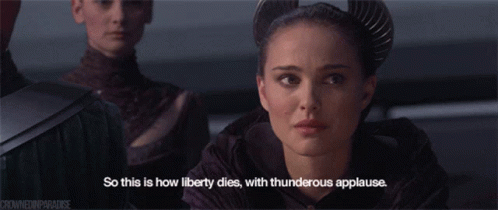It's a disappointing result. Hard to see how America could so overwhelmingly elect someone so openly nasty and venal, found guilty in civil court of rape, an obvious racist who uses the language of the 1930s to describe non-whites, and all the rest.
And yet, at the same time, it's kind of easy. It's the economy, stupid. Most people don't pay that much attention to politics. They'll handwave the stuff Trump says and does, or assume it's overhyped or overstated or misinterpreted, because they feel that their daily lives are worse than they used to be and that they're getting worse.
When they've got the option of a 'change' candidate whose platform is that they will make radical moves to improve the economy and their daily lives, and a continuity candidate whose platform is social issues they don't care about plus vague neolib trickle-down economics that decades have proven do diddly squat for the ordinary man on the street, it's not surprising that they'll turn out in such numbers for the former.
It doesn't matter that Trump is lying about helping ordinary Americans (which of course he is), because it's still worth taking the chance he might improve things versus getting the certain disappointment of what the Dems will deliver.
You can treat Trump's win as an indictment of people's basic selfishness - there are far fewer fervently anti-trans, anti-non-white folks than there are those that simply don't care about these issues one way or the other - but it's probably not that constructive. There's not much that can be done about human nature.
What is probably more useful is to consider how it reflects on mainstream centrist politics in the shape of the Democrats (and for that matter, Labour). This neolib ****, it doesn't work. And it leaves countries vulnerable to fascist demagogues who offer change in any form, because the population has only ever been disappointed by 'stable' centrism.
If you had an actually radical left platform just like you have a radical right one - a platform that taxed the rich and corporations more, and raised the minimum wage, i.e. one that actually redistributed wealth downwards rather than only upwards - well, the data shows that the majority of Americans would actually agree with it.
And yet they voted far-right. And that is a damning indictment of the failure of centrist politics.
And yet, at the same time, it's kind of easy. It's the economy, stupid. Most people don't pay that much attention to politics. They'll handwave the stuff Trump says and does, or assume it's overhyped or overstated or misinterpreted, because they feel that their daily lives are worse than they used to be and that they're getting worse.
When they've got the option of a 'change' candidate whose platform is that they will make radical moves to improve the economy and their daily lives, and a continuity candidate whose platform is social issues they don't care about plus vague neolib trickle-down economics that decades have proven do diddly squat for the ordinary man on the street, it's not surprising that they'll turn out in such numbers for the former.
It doesn't matter that Trump is lying about helping ordinary Americans (which of course he is), because it's still worth taking the chance he might improve things versus getting the certain disappointment of what the Dems will deliver.
You can treat Trump's win as an indictment of people's basic selfishness - there are far fewer fervently anti-trans, anti-non-white folks than there are those that simply don't care about these issues one way or the other - but it's probably not that constructive. There's not much that can be done about human nature.
What is probably more useful is to consider how it reflects on mainstream centrist politics in the shape of the Democrats (and for that matter, Labour). This neolib ****, it doesn't work. And it leaves countries vulnerable to fascist demagogues who offer change in any form, because the population has only ever been disappointed by 'stable' centrism.
If you had an actually radical left platform just like you have a radical right one - a platform that taxed the rich and corporations more, and raised the minimum wage, i.e. one that actually redistributed wealth downwards rather than only upwards - well, the data shows that the majority of Americans would actually agree with it.
And yet they voted far-right. And that is a damning indictment of the failure of centrist politics.


Comment